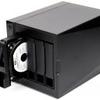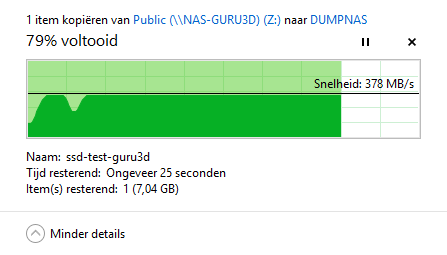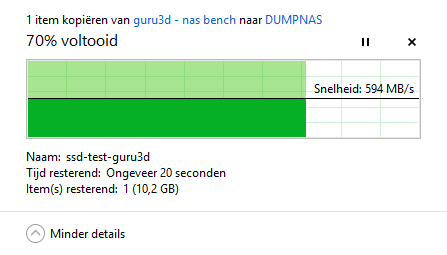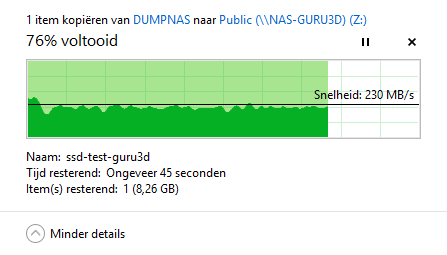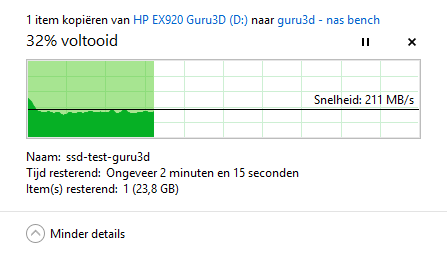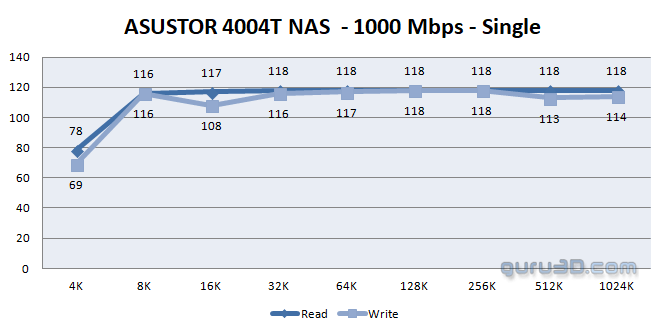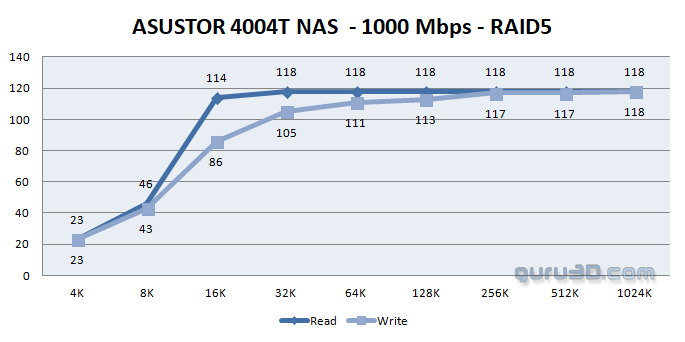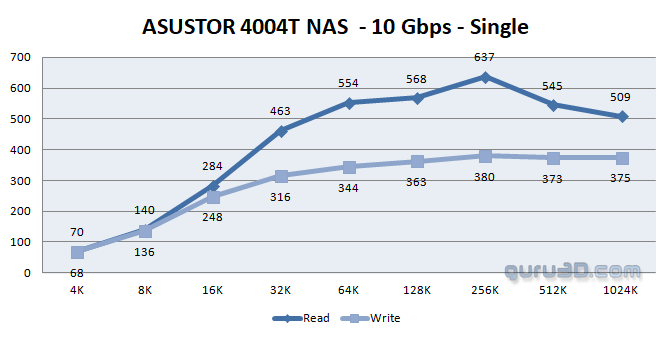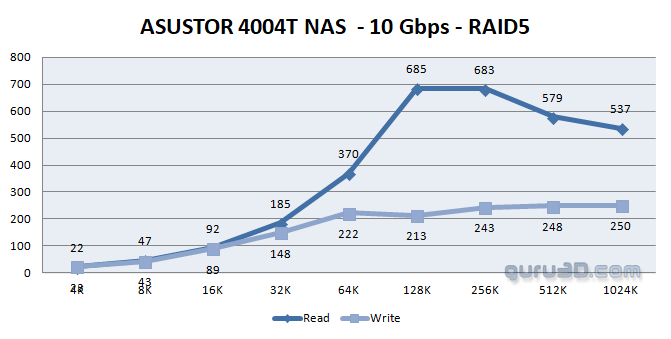NAS Storage Performance Benchmarks
We'll also look with a file-explorer-copy, Atto and Anvil storage utilities to see what performance is like. Basically, we make a network share and measure the storage unit. It is the most simple test but for a centralized network-based storage probably the most used copy feature, making it a very important one.
File Copy
The most basic and simple test anyone can perform. We simply drop a compressed MKV file onto the NAS. As you can see, the result is roughly 112 MB/s at the end of the file copy sequence, that's write performance. Read performance would look very similar as we are closing in on the network bandwidth threshold.
1x SSD copy from NAS performance / 10 Gigabit / Single SSD
3x SSD copy from NAS performance / 10 Gigabit / RAID5 SSD
Above you can observe coping a file from the NAS towards your local storage. The RAID5 configuration was averaging out at 600 MB/sec, the Single SSD at close to 400 MB/sec. But now let's startup the write performance towards the NAS again:
1x SSD copy towards NAS performance / 10 Gigabit / Single SSD
3x SSD copy from NAS performance / 10 Gigabit / RAID5 SSD
So again we can confirm that reads are pretty much maxing out to the capability of the NAND storage unit. However writes remain a good chunk slower due to the processor inside this NAS. It's still twice the speed that of a Gigabit though. We'll run one more set of tests to confirm what we are seeing.
Atto Disk Benchmark
One of the finest tools available to measure storage performance is ATTO. I love it to death as it is so reliable and produces such accurate results. The great thing about ATTO is that we can test with predefined block sizes. So we can test with a 32 MB sequence of 4 KB files, yet also 32 MB in 1 MB files. This gives us an excellent scope of overall performance with small and large files.
Above the Gigabit connection. You can see that the processor already has some lower RAID5 performance - however still, that's totally normal and acceptable (even good) perf for both reads and writes.
So here again, overall we spot really good read performance. However, RAID5 has a toll on smaller block sizes as well as overall write performance. My advice, go with JBOD or Single disk configurations if you want to max out your write performance.
